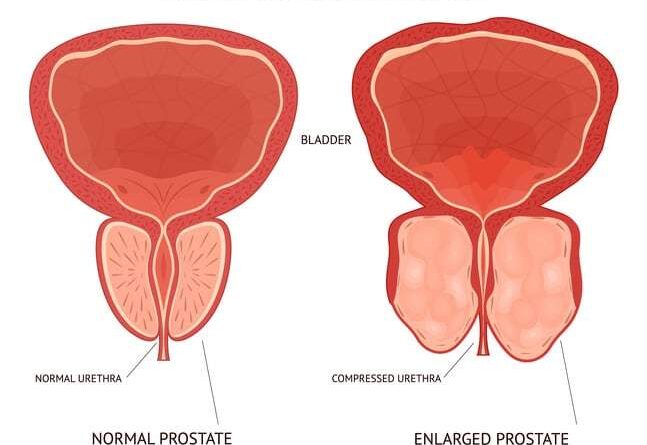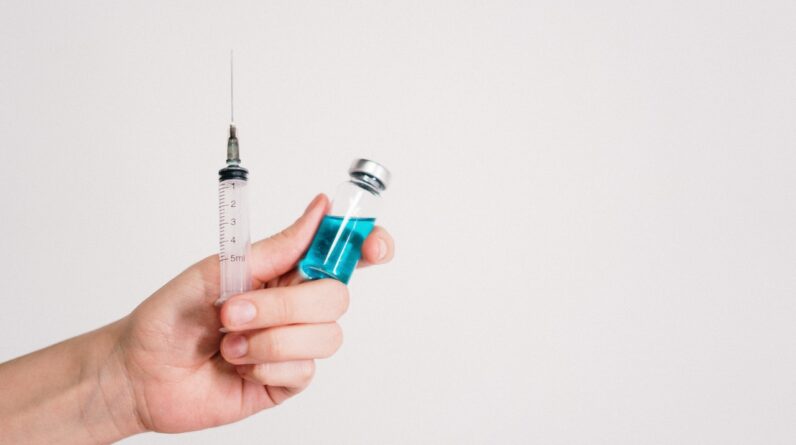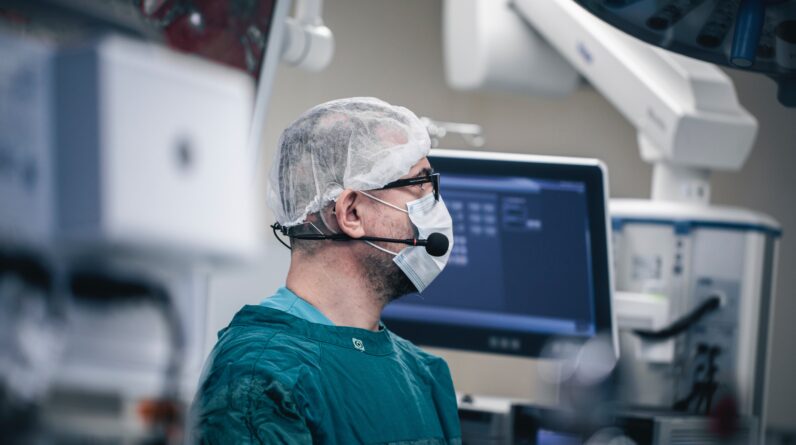
There’s an intimate connection between hernia surgery and potential prostate problems, given their anatomical proximity. Let’s delve into the different problems one might face.
One of the most common issues following hernia surgery is urinary problems. Some men may experience difficulty in urinating, a weaker urine stream, and urinary frequency or urgency.
Prostate Infection
Another issue that can arise is a prostate infection or prostatitis. This can occur due to the spread of bacteria during surgery, causing symptoms like discomfort, fever, and urinary problems.
Erectile Dysfunction
While less common, erectile dysfunction can occur after hernia surgery due to nerve damage or changes in blood flow. Men might find it difficult to achieve or maintain an erection as a result.
Long-Term Complications
In some instances, men can experience long-term complications like chronic prostatitis or lasting urinary issues. It’s crucial to monitor any changes and consult with a healthcare provider for a proper diagnosis.
Prevention and Management
The management of these complications involves a multifaceted approach, including medications, lifestyle changes, and in some cases, further surgery. Prevention, on the other hand, includes maintaining a healthy lifestyle and following the surgeon’s post-operative advice closely.
Seeking Medical Attention
If you experience any prostate problems after hernia surgery, seeking medical attention promptly is crucial. Your healthcare provider will be able to provide a comprehensive plan to manage these issues.
In Conclusion
The connection between hernia surgery and prostate problems is clear. It’s crucial to remain vigilant for any symptoms and seek immediate medical attention if any issues arise. With proper management and care, these problems can be effectively managed, reducing their impact on your quality of life.
In the end, it’s essential to remember that while prostate problems after hernia surgery can be a distressing experience, they are often manageable with the right care and treatment. Always consult with your healthcare provider if you have any concerns post-surgery. Knowledge and proactive action are your best allies in maintaining your health and wellbeing.
FAQs
1. Can hernia surgery cause prostate problems?
Yes, hernia surgery can potentially cause prostate problems due to the close anatomical proximity of the prostate to the site of surgery. Urinary issues and prostate infection are among the more common problems experienced.
2. What should I do if I experience prostate issues after hernia surgery?
If you experience any signs of prostate problems, such as difficulty urinating, discomfort in the pelvic area, or erectile dysfunction, seek medical advice promptly. Early detection can lead to more effective management strategies.
3. How can I prevent prostate issues after hernia surgery?
While not all prostate issues can be prevented, maintaining a healthy lifestyle, staying hydrated, and following your doctor’s post-operative advice can help reduce the risk. Regular check-ups also ensure early detection and treatment of any issues that do arise.
4. Are prostate problems after hernia surgery long-term?
Not necessarily. While some men may experience long-term complications, many prostate problems after hernia surgery are temporary and can be effectively managed with proper treatment and care.
5. Can prostate problems after hernia surgery be cured?
Yes, most prostate problems can be effectively treated. The treatment approach depends on the specific issue and its severity, and may include medications, lifestyle changes, or in some cases, additional surgical procedures.
6. Is it normal to have urinary issues after hernia surgery?
Yes, it’s fairly common to experience urinary issues such as frequency, urgency, or discomfort after hernia surgery. However, these symptoms should gradually improve. If they persist, it’s essential to consult with your doctor.
7. What lifestyle changes can help manage prostate problems after hernia surgery?
Healthy lifestyle changes can significantly help manage prostate problems. These changes may include maintaining a balanced diet, regular exercise, staying hydrated, limiting alcohol and caffeine intake, and avoiding activities that put pressure on the area around the hernia repair.
8. Can prostate problems after hernia surgery affect sexual function?
While it’s less common, some men may experience sexual problems such as erectile dysfunction or a decrease in sexual desire after hernia surgery. This is often due to changes in blood flow or nerve damage. It’s important to communicate any such issues with your healthcare provider, as effective treatments are available.
9. How soon after hernia surgery can prostate problems occur?
Prostate problems can occur immediately after surgery or may develop over time. Symptoms like urinary discomfort or frequency, pelvic pain, or sexual problems should be reported to your healthcare provider promptly.
10. Can prostate problems recur after treatment?
Some prostate problems, such as prostatitis, can recur even after treatment. Regular follow-ups with your healthcare provider can help monitor your condition and adjust treatment plans as needed.







